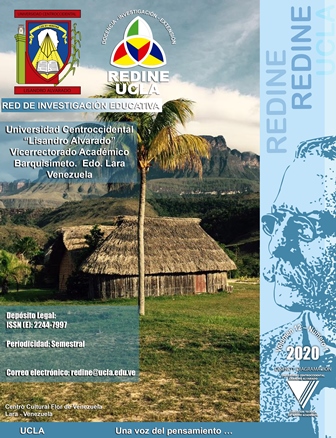Editorial
Abstract
The board of directors and other members of the REDINE magazine, has the pleasure and pleasure of exhibiting to our esteemed readers, volume 12 corresponding to the First Semester, (January / June) of the year 2020, which includes a set of articles and essays scientists with plurality in their research topics, whose central purpose is to communicate, cooperate and build cognitions of a social scientific order, which contribute to the generation of revealing contributions, in the dissimilar areas of the globalizing world that surrounds us and affects the daily work. Regarding this aforementioned statement, inquiries regarding: elaboration of degree works with the application of the multimethod, the integral quality in public health center, university teaching in hypermodernity, vision of a new science. The internal articles of this new volume of REDINE magazine were conformed as follows: “The multimethod as an innovative approach for the elaboration of undergraduate work in the UPEL Master's Degree - IP B”, authors: Lic. Audra Ambrocio y Dr. Wilmer Chávez Rea, “Integral quality in the processes during the admission of patients to the Doctor Pastor Oropeza Social Security rehabilitation unit”, author: Lic. Alina Ponce, “Meaning and meaning of being a University Teacher in Hypermodernity” , author: Dr. Douglas Barráez Herrera, “Towards a new Science, from the vision of Morín and Martínez Miguelez”, authors: Alexaivy Torres López and Prof. Abdul Lugo Jiménez, “Research skills and their relevance in the development of a Doctoral Thesis ”, Authors: Ing. Olga Palma and Ing. María Linares“. After this brief characterization, I invite you to read, enjoy and reflect on the content of each scientific publication ´presente in this new edition and we reiterate our thanks for your selfless support and transmission in the nature of social inquiries.
Downloads
Published
How to Cite
Issue
Section
Copyright from the year of publication
This work is licensed under a:
Creative Commons Reconocimiento-NoComercial-CompartirIgual 4.0 Internacional (CC BY-NC-SA 4.0)
The opinions expressed by the authors do not necessarily reflect the views of the publication's editor or UCLA. Total or partial reproduction of the texts published here is authorized, provided that the complete source and the electronic address of this journal are cited. Authors have the right to use their articles for any purpose, provided it is done on a non-profit basis. Authors may publish the final approved version of their work online or in any other medium after it has been published in this journal.




